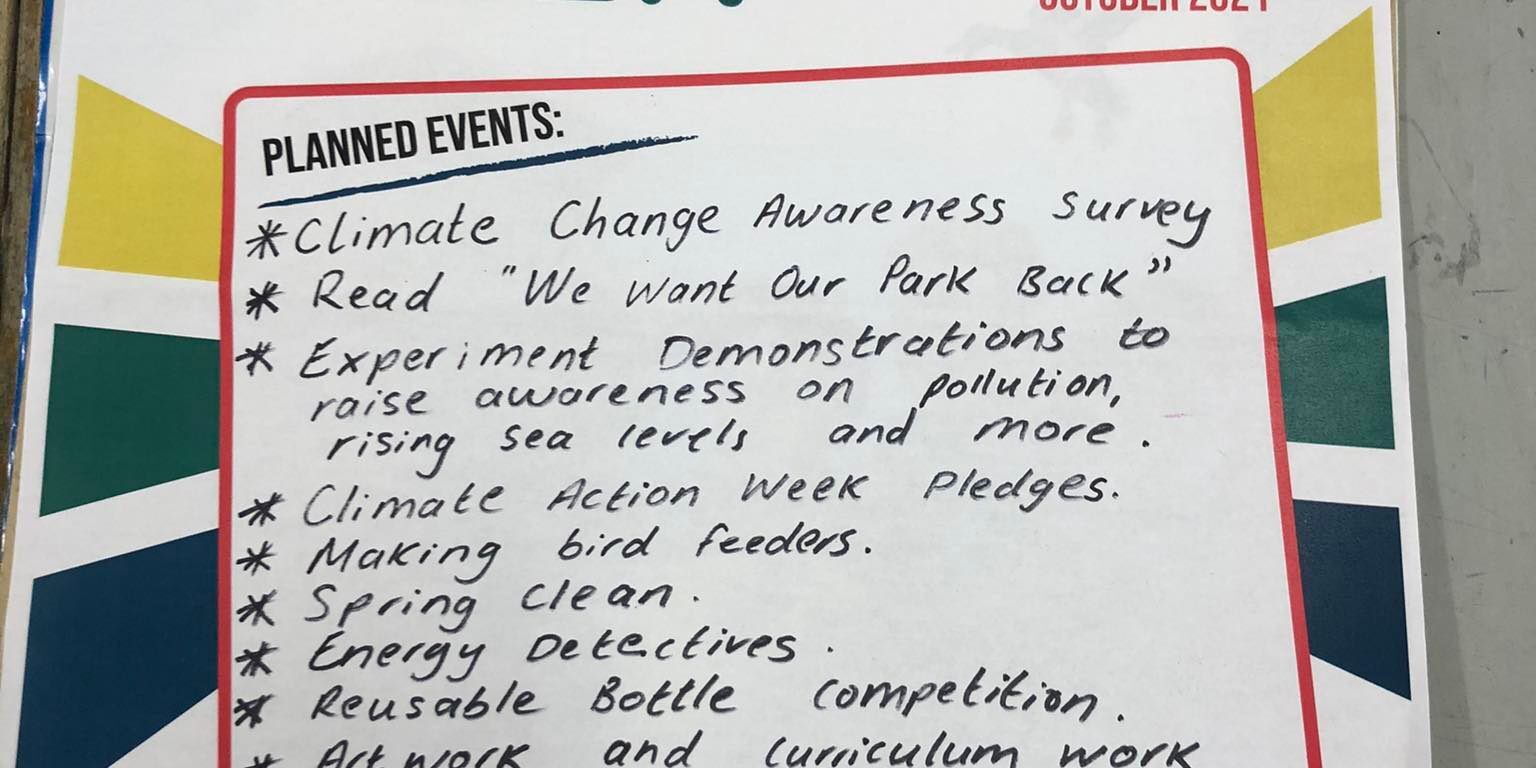We were very busy for Climate Action Week this year. It was so much fun and we learned so much.
Junior Infants did a clean up of the school grounds, we carried out a climate change awareness survey and each class read the book ‘We Want Our Park Back’. Miss Murphy demonstrated experiments to all of the classes with the help of The Green-school’s committee to help raise awareness about pollution and rising sea levels, First Class made Climate Action Week pledges and bird feeders. Junior Infants drew happy planets. Senior Infants coloured pictures about climate change. Each class now has energy detectives and leaky tap detectives and we are all making a special effort to have litter free lunches and to use reusable bottles. Thank you to everyone who took part. See below for some information about Climate Change and some pictures from Climate Action Week. 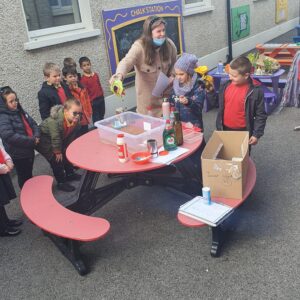
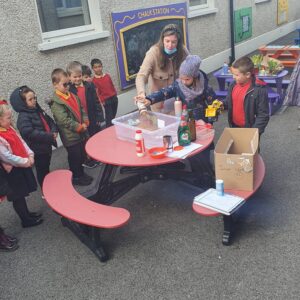
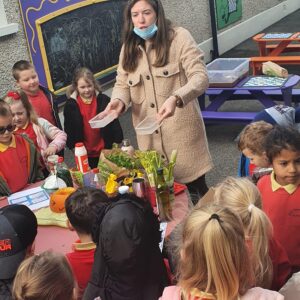
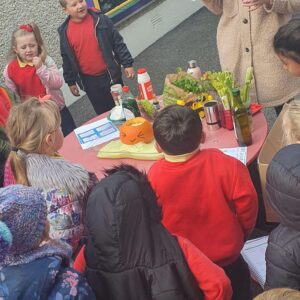
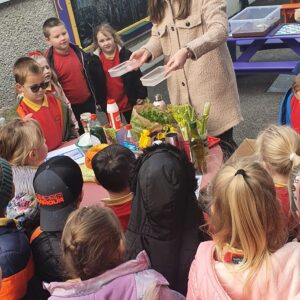
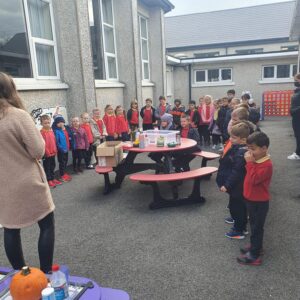
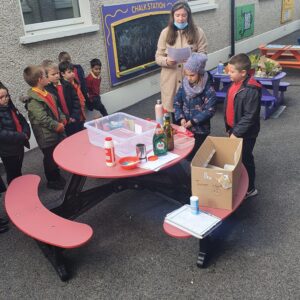
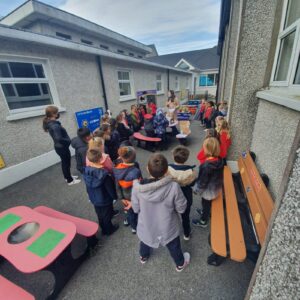
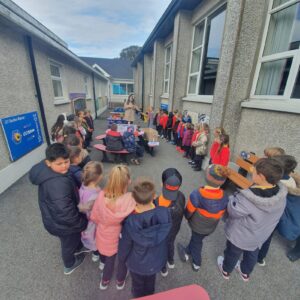
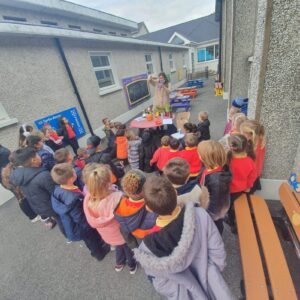
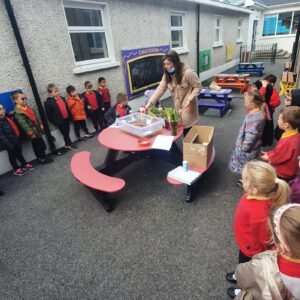
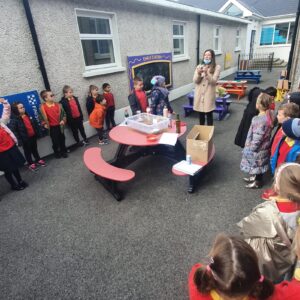
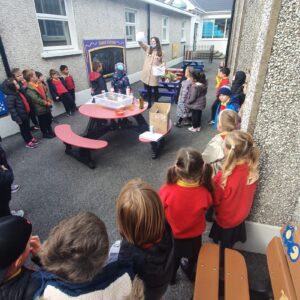
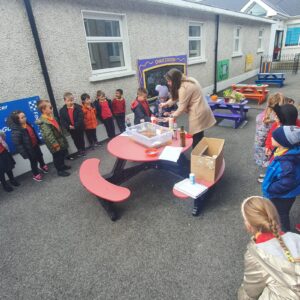
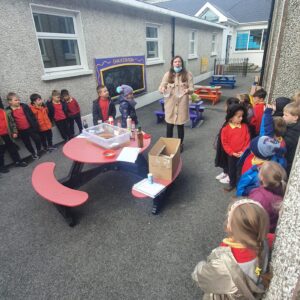
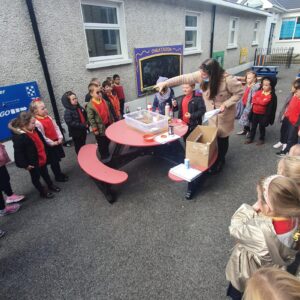
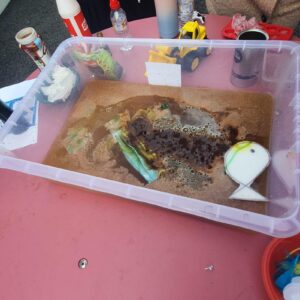
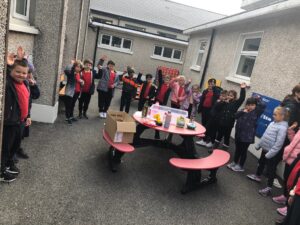
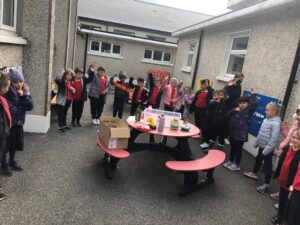
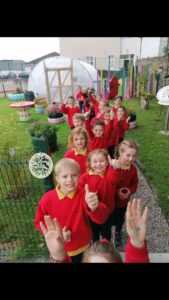
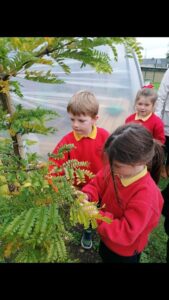

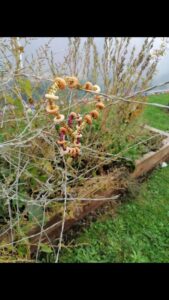
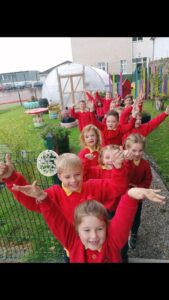

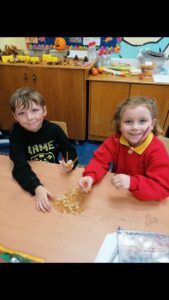
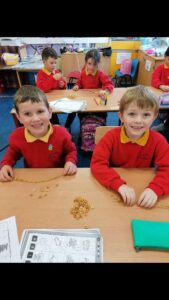
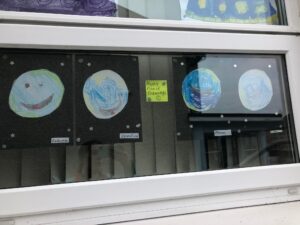
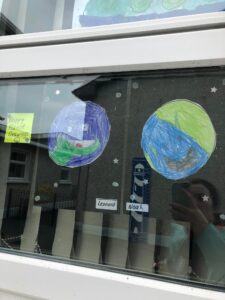
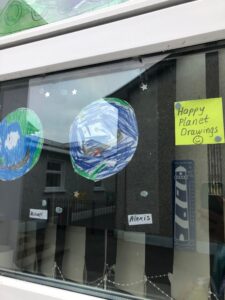
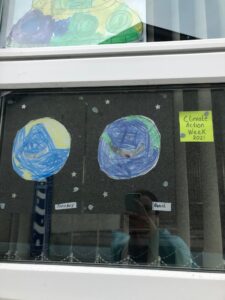
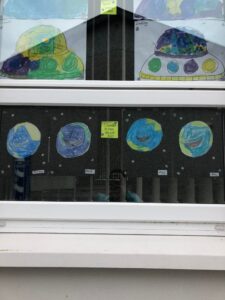
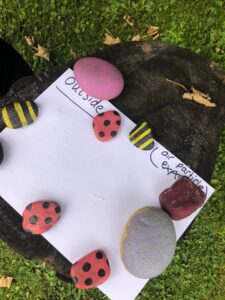
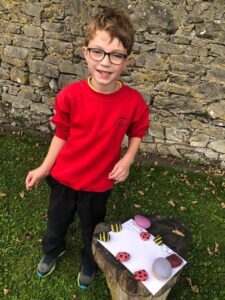
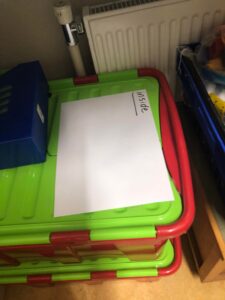
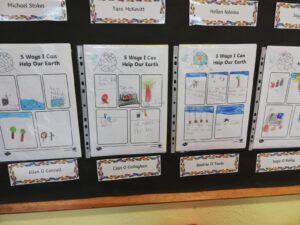
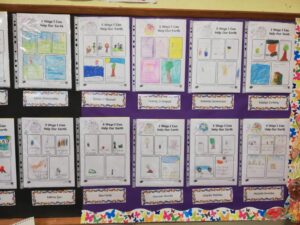
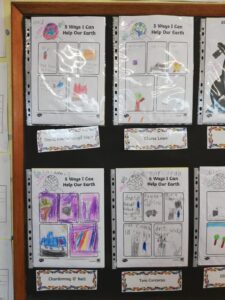
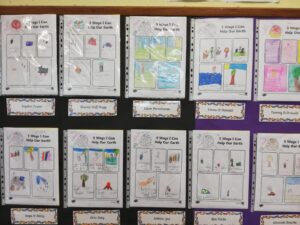
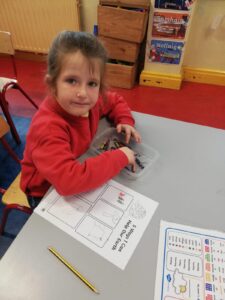
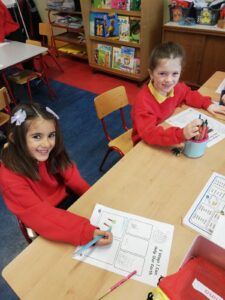
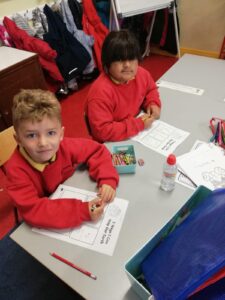
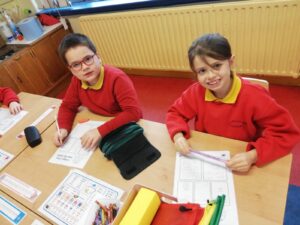
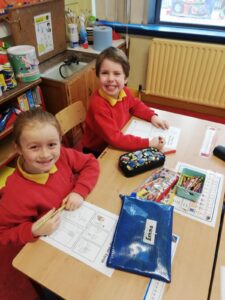
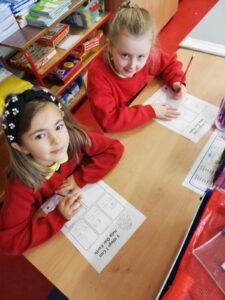
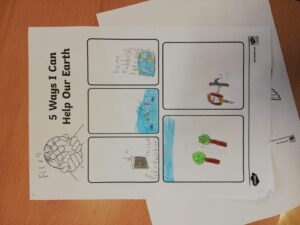
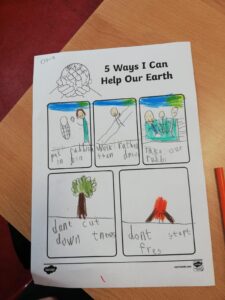
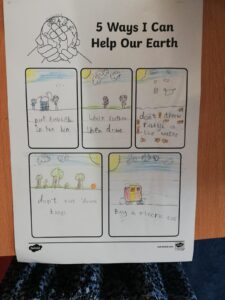
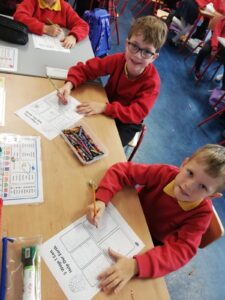
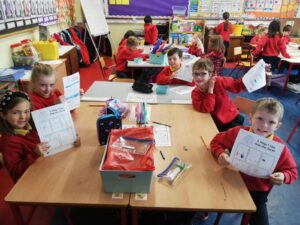
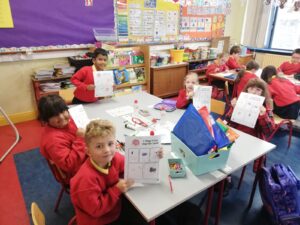
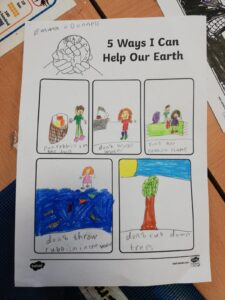
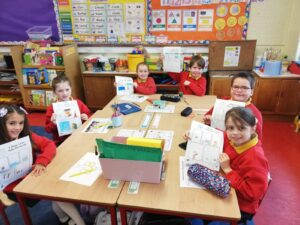
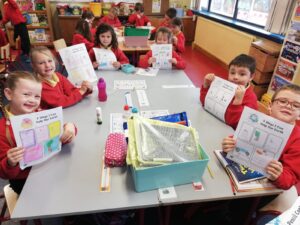
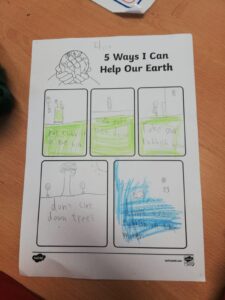
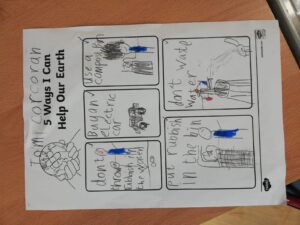
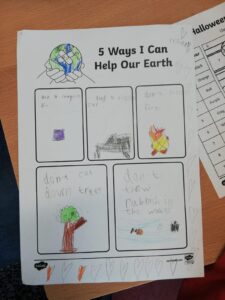
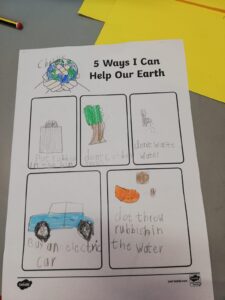
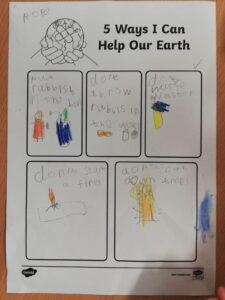
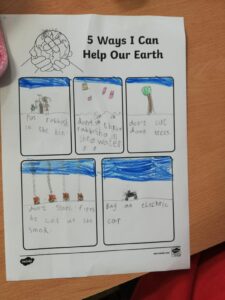
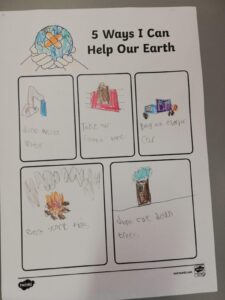
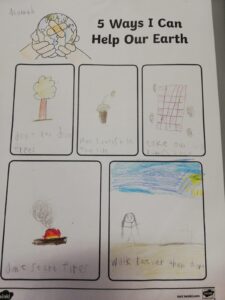
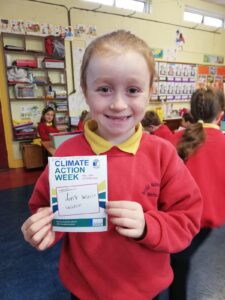
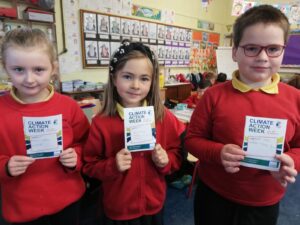
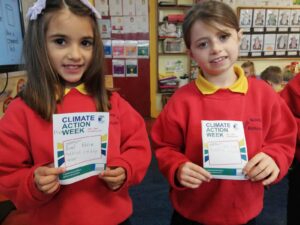
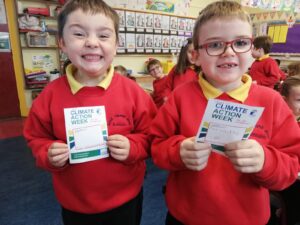
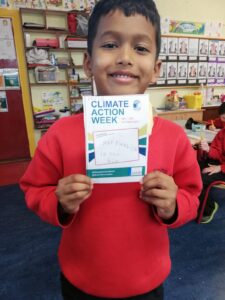
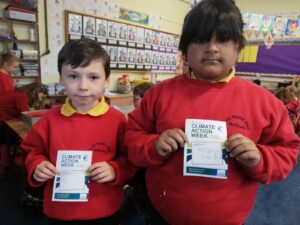
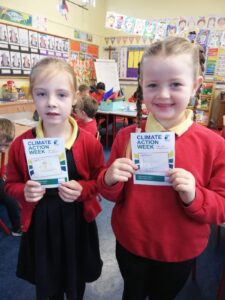
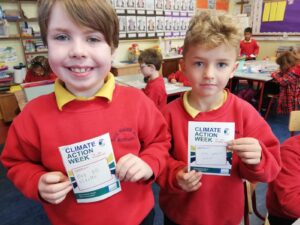
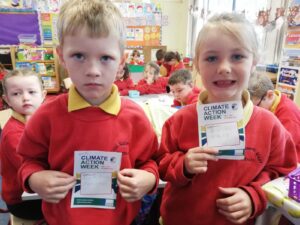
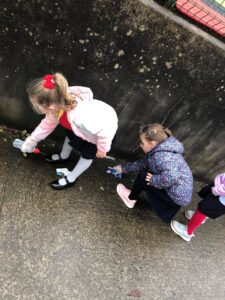
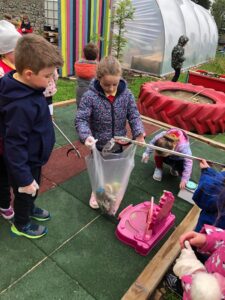
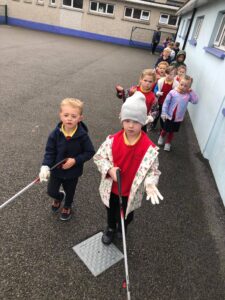
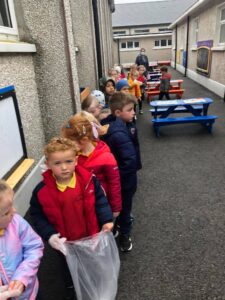
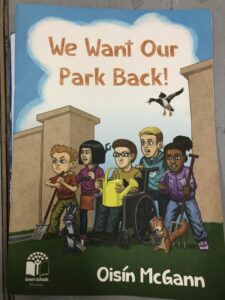
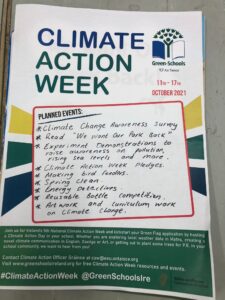
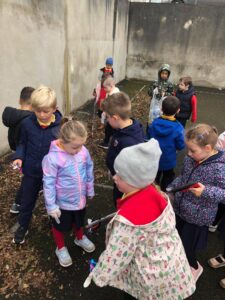
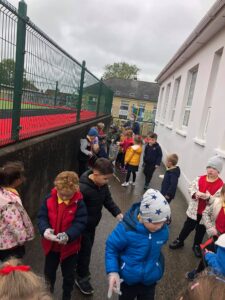
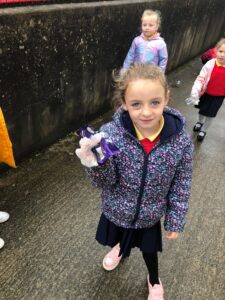
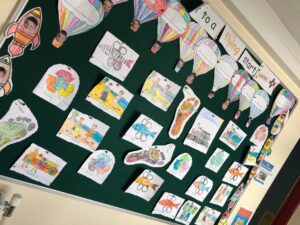
What is climate change? Climate change describes a change in the typical weather for a region — such as high and low temperatures and amount of rainfall — over a long period of time. Scientists have observed that, overall, Earth is warming. In fact, many of the warmest years on record have happened in the past 20 years. This rise in global temperature is sometimes called global warming.
Why is climate change happening? Some of the gases in Earth’s atmosphere trap heat from the Sun — like the glass roof and walls of a greenhouse. These greenhouse gases keep Earth warm enough to live on. But human activities, such as the destruction of forests and burning fossil fuels, create extra greenhouse gases. This traps even more of the Sun’s heat, leading to a warmer Earth.
What are the effects of climate change? There will be more extreme weather. Extreme events, including wildfires, floods and hurricanes, have become a frightening new normal. Hotter temperatures, air pollution and violent storms are leading to immediate, life-threatening dangers for children, including difficulty breathing, malnutrition and higher risk of infectious diseases. As well as the threat on human health and the increase the risk of some types of extreme weather, climate change effects ecosystems. As the oceans warm and polar ice caps melt, sea levels are rising, endangering coastal areas. These impacts are already being felt today, and groups like the poor, elderly, and those living in conflict areas are especially vulnerable.
What can we do to prevent further change? We can all make a pledge to make small changes in our daily life by reducing our carbon footprint. We can do this by reducing the burning of fossil fuels, planting more trees, carpooling/cycling/walking to school. We can help the planet in general by recycling our waste, picking up litter on streets and beaches, reducing our plastic, water and energy use and so much more.
Useful resources
https://climatekids.nasa.gov/menu/make/
https://www.soilassociation.org/take-action/protect-the-environment/cut-your-carbon-footprint/

